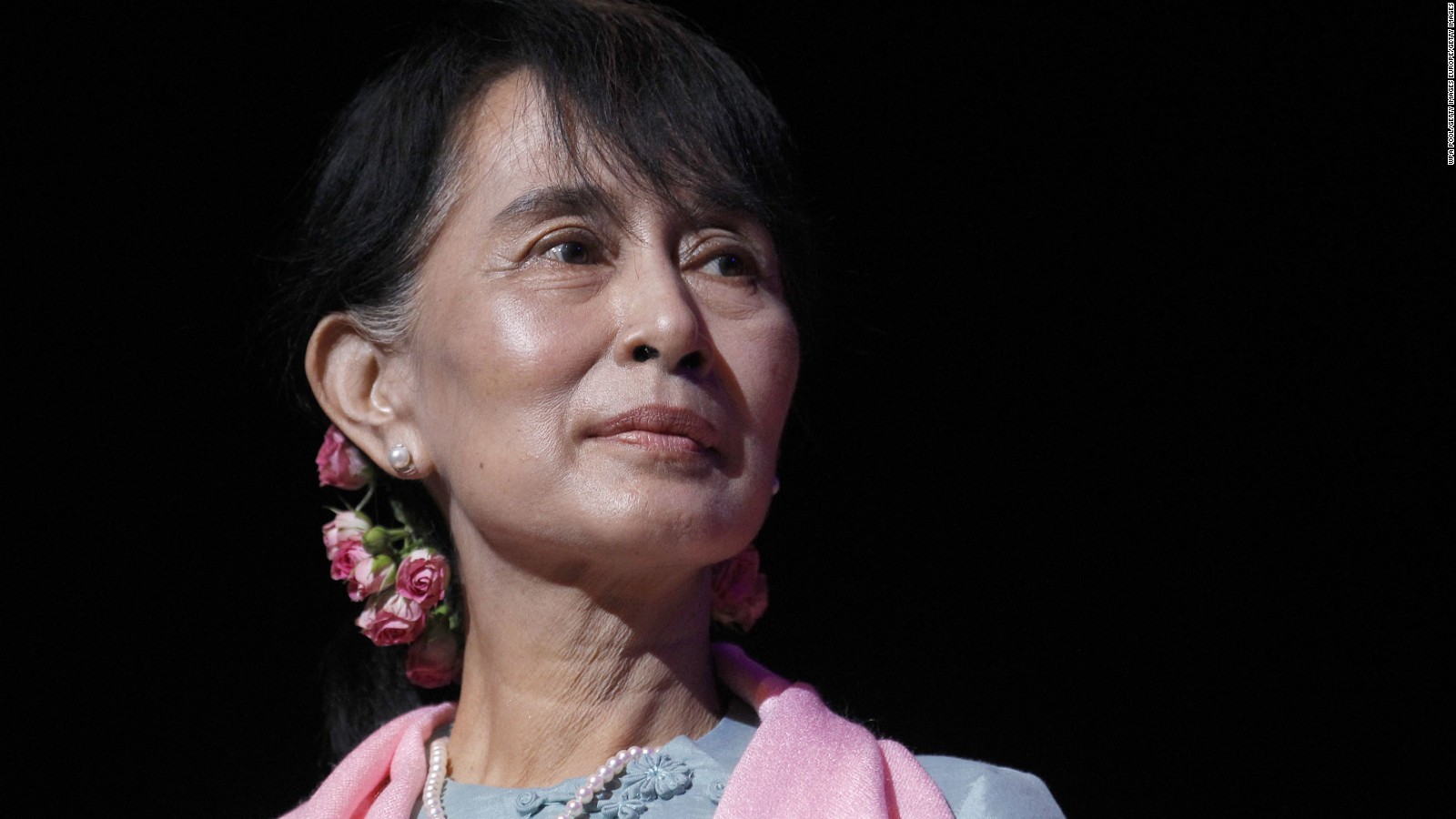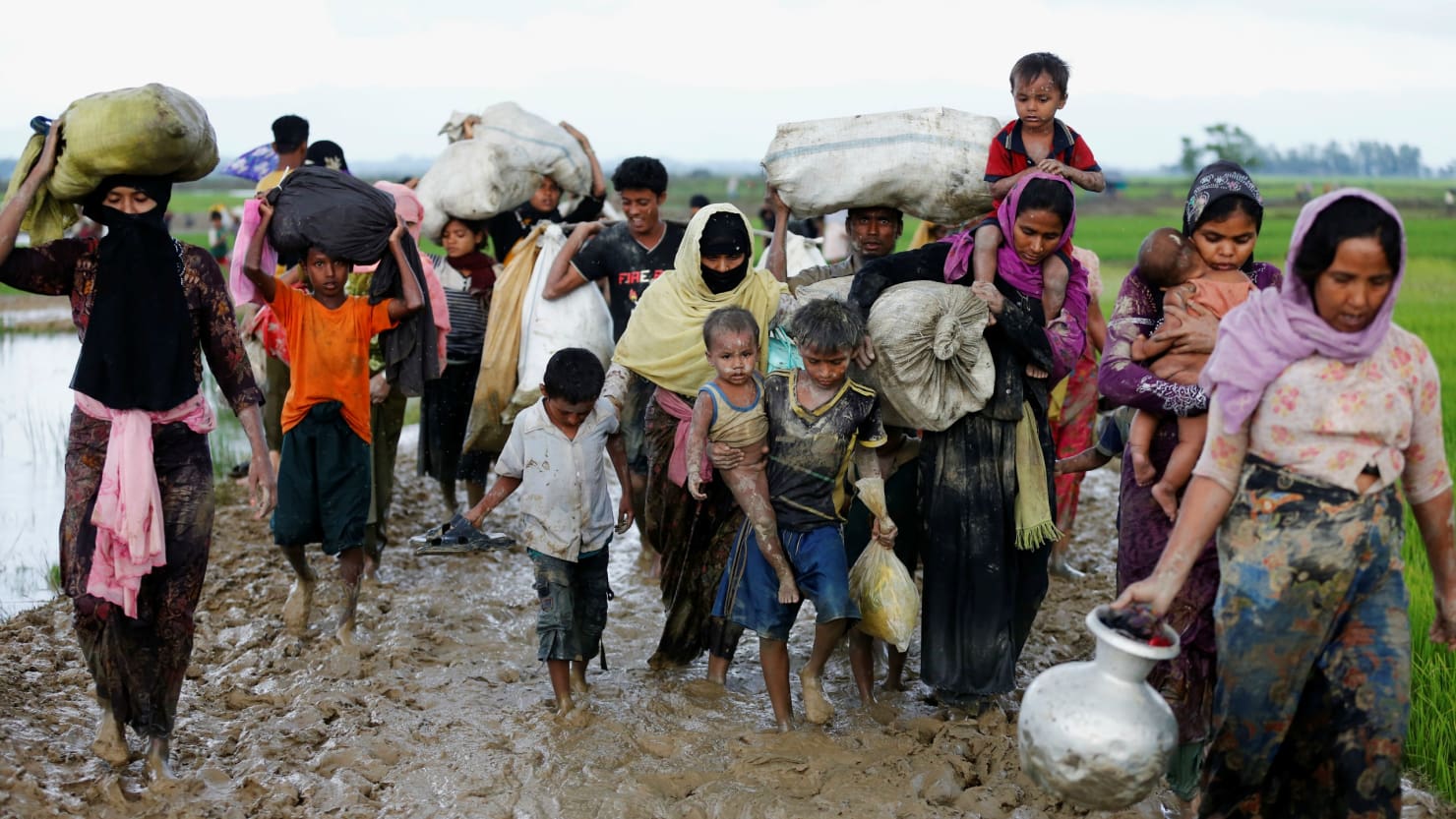Aung San Suu Kyi and The Rohingya Crisis… Or When Political Utilitarianism Overrules Universal Morality!
The Rohingya crisis has (finally) stirred international public opinion and mainstream media interest, putting increasing pressure on Aung San Suu Kyi to respond, but what is aberrant and surprising is her silence, a silence full of meaning coming from the recipient of the Sakharov Prize for Freedom of thought and the Nobel Peace Prize! During her house arrest and her ban from accessing the Burmese political sphere, the West was her lifeline thanks to its support over the years through the fundamental values of universal morality (the rejection of selfishness, the pursuit of the common good, and the human being as the finality of any action). These values have allowed Aung San Suu Kyi to cross the desert and gain access to the current position she is holding now as the State Counsellor of Myanmar. Thus, when the army and the Buddhist majority threaten some Burmese (in this case the Rohingya, who were stripped of Burmese citizenship by the military junta’s 1982 decree), the world’s citizens expect Aung San Suu Kyi to display the same morality vis-à-vis ‘her people’, regardless of religion and ethnicity, and to defend the rights of the persecuted. So why has she remained silent?
The current Rohingya crisis is just the tip of the iceberg!
There is only one possible answer: Aung San Suu Kyi preferred political utilitarianism to universal morality. When she was under house arrest, she loudly subscribed to Western values; she prided herself on defending democracy (‘I do protect human rights, and I hope I shall always be looked up as a champion of human rights’) and on disliking violence (‘I do not hold to non-violence for moral reasons, but for political and practical reasons’). She pushes the principle of nonviolence too far, by turning a blind eye and a deaf ear to the overwhelming evidence with regards to the Rohingya crisis despite the international public opinion cries of outrage, including those of the media and the United Nations.
This posture and this silence reveal Aung San Suu Kyi’s strategy: The utilitarianism of her selfish interests takes precedence over the universal morality that saved her from the clutches of military power during her house-arrest period. She seeks to ‘humor’ three key players, namely the Burmese military junta, the Buddhist Burmese majority… and China! She prefers to ally herself with them since Western values threaten her interests; she turns to the Confucian values of political utilitarianism in which one privileges their family and their religious group while excluding the others (i.e. the Rohingya).
Let’s not forget that the Burmese military junta, a junta that was supported by China in the past, made her life very difficult and the Buddhist Burmese majority continue to be a threat to her, especially if she criticizes them for their violence against Rohingya people. The Burmese Buddhists have also sinned by preferring political utilitarianism over the fundamental religious principle of Buddhism, namely compassion and respect for life.
Aung San Suu Kyi walks on eggshells with the junta and the Buddhists and gives them what they want, namely a tacit ‘blessing’ to massacre powerless and stateless Rohingya people. Meanwhile, the Rohingya diaspora continues to flee the country, reaching over 400 000 (according to the latest UNHCR communiqué), going to Bangladesh, an impoverished country that has neither the means nor the infrastructure to accommodate a significant influx of refugees, an even more dire example than that of Lebanon with its Syrian refugees.
Aung San Suu Kyi’s silence attracts the outrage of the international community on many levels. Already there are Sikhs who have arrived to help with food and shelter. Don’t be surprised if Islamist terrorist groups start operating in Myanmar in retaliation for the abuse of the Rohingya. And who can help Myanmar in this case? China, the regional key player of course!
Aung San Suu Kyi aligns herself with China, the top investor in Myanmar and the main arms suppliers of the Burmese army. This is the same China that maintains a hard line against the Uyghurs and Muslim Chinese, as well as against Tibetan nationalists and Tibetan Buddhism. No wonder her behavior is modeled on that of China! On a geopolitical level, Aung San Suu Kyi prefers the shelter of the Chinese umbrella to ensure her protection at the UN Security Council… It is worth noting that Russia, Myanmar’s second-largest arms supplier, plays (to a certain extent) the role of another essential protector. From a Chinese point of view, neighboring countries are always welcome to ensure its regional domination at all levels (economic, political, and cultural) and to ensure the very-much-needed access to the Indian and Pacific oceans.
Is the Rohingya iceberg in danger of sinking the Chinese Titanic?
Without wanting to play the role of Cassandra, Myanmar will probably be the next Afghanistan of China. An ‘invisible thinking head’ broke the USSR in Afghanistan by mobilizing Islamic jihadism; this same jihadism has helped to dismantle Syria and Libya, and the threat is (again) hanging over the Sahel-Sudanese region, has a strong presence in Nigeria and has gained much territory in Mali, and it will weigh on the Asian Islam that is in Indochina (Vietnam, Thailand, Cambodia, Laos, Malaysia, and Singapore) and in the Philippines. Everything suggests that Aung San Suu Kyi’s silence about the Rohingya genocide is the prelude to a new Afghanistan in the Indochinese region. The aftermath will not serve China’s purpose since the Middle Kingdom is already facing their own Muslim issue with the Uyghurs, on top of the long-standing Tibetan difficulties. The embers are present and can be revived at the slightest gust of wind.
That said, unlike Russia, China will not engage fully in a Myanmar riddled with jihadists. It will give support using homeopathic doses (in accordance with the Confucian modus operandi) to avoid being bogged down.
Is Aung San Suu Kyi worthy to represent and honor the Nobel Peace Prize winners? No… if she maintains her current stance! Moreover, the South-African Desmond Tutu, the Iranian Shirin Ebadi, and the Pakistani Malala Yousafzai have decried her silence. Even the Tibetan Buddhist Dalai Lama urged her to talk by reminding her that ‘Buddha would have helped persecuted Rohingya refugees’… Unfortunately for the Rohingya, Aung San Suu Kyi has dropped universal moral values in favor of her selfish political agenda.
If the current petition to return the Nobel Peace Prize is successful, it would be a boon for China. Indeed, most likely, China will be eager to award the Confucius Peace Prize to Aung San Suu Kyi since this Prize is usually awarded to an authoritarian leader who is flouting Western cultural values, like Mugabe and Putin. After the Sakharov Prize for Freedom of Thought and the Nobel Peace Prize, is Aung San Suu Kyi aiming for the Confucius Peace Prize to complete her collection?

This article is published under a Creative Commons Attribution-NonCommercial 4.0 International licence.


